As defined by psychological treatises, “Empathy is the experience of understanding another person’s thoughts, feelings, and condition from his or her point of view, rather than from one’s own. Empathy facilitates prosocial or helping behaviors that come from within, rather than being forced, so that people behave in a more compassionate manner.” It’s long been said that the best way to have empathy for someone or their situation is to walk a mile in their shoes, put yourself in the other’s place.
What’s interesting about empathy, however, is that empathy may be associated with and/or a product of genetics. Although debated by some, research now suggests that it is possible to boost the capacity for empathy, understanding, and empathic compassion thanks to “mirror neurons.” “Mirror neurons” are believed to enhance one’s capacity to read emotional signals of others through body language and facial expressiveness. It is further believed that these “mirror neurons” also enhance and intensify one’s ability to display and mimic the emotion signals of others. In short, they may allow us to share emotional experiences and become more empathetic towards one another.
Enter screenwriter Mark Leidner and director YEDIDYA GORSETMAN with EMPATHY, INC.
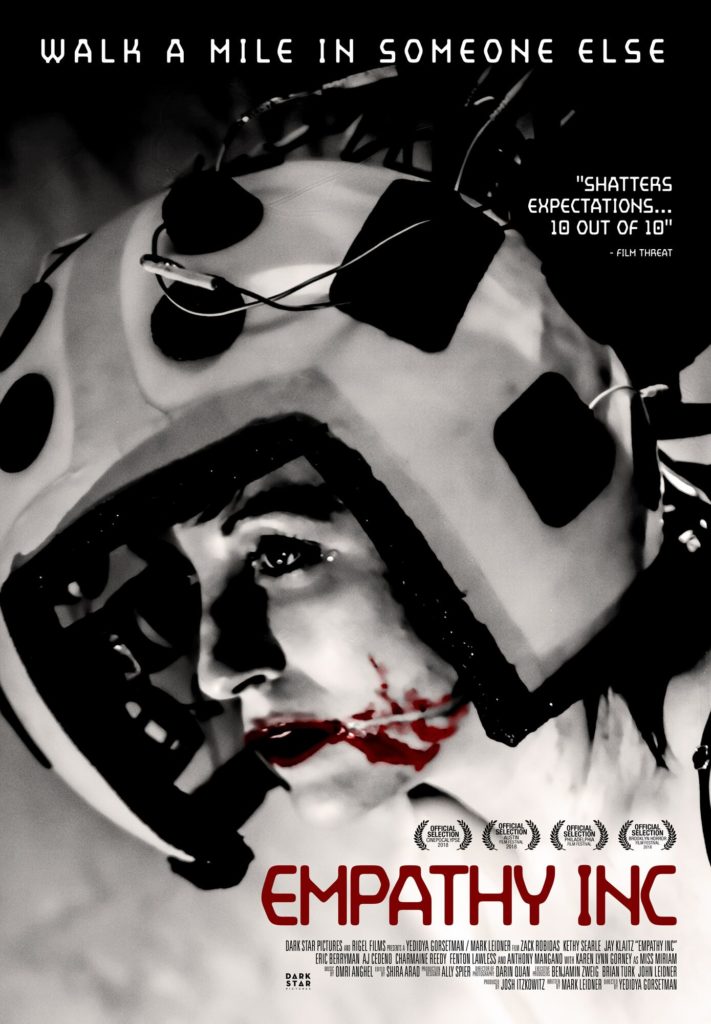
An engrossing sci-fi/fantasy suspense that morphs into a cat and mouse thriller taking the concepts of virtual reality and identity exchange to extreme levels, EMPATHY, INC. creates a world where, ideally, “high-end” clients are able to feel what it’s like to be under-privileged, allowing individuals to gain perspective, appreciate what they have in life, and be grateful. Even in the early stages of development, the XVR exchange is highly sophisticated and goes beyond tapping into those “mirror neurons”. But as we see, stepping into another man’s shoes (or self), now fully complete and immersive with touch, taste, and smell thanks to the extreme virtual reality experiences, is a completely addicting experience; at least it is as to protagonist Joel, a one-time Silicon Valley venture capitalist who lost everything after taking a $100 million fall thanks to an inventor who falsified data. Forced to crawl back to his in-laws on the East Coast in order to have a roof over his head and possibly start fresh, when Joel gets a whiff of what his old hustler friend Nicolaus Veezy has his hands in with XVR, Joel jumps in head first, conning his father-in-law, his wife, and himself, as he quickly becomes more than just a venture capitalist. With just one taste of the XVR experience, Joel is hooked and it doesn’t take long before he’s sneaking back into the laboratory, craving more and more of the “exhilarating” experiences of the virtual world. But just how “virtual” is this XVR world?
With more twists and turns than a serpentined rollercoaster, EMPATHY, INC. keeps you on your toes from beginning to the very end, pushing the envelope from both a creative and thought-provoking ethical standpoint, positing questions that loom long after the film ends. But propelling the already engrossing story even further, ever higher, is the work of director YEDIDYA GORSETMAN and his cinematographer Darin Quan, Electing to shoot in black & white, the result is a world that feels wholly unto itself. The visual palette is metaphoric of life being black and white, but then they delve into the “grays” found inbetween; Quan paints with light and then lets the lens embrace negative space, something made more so in the B&W format, letting the mind wander and wonder into “the unknown” of the dark. Varied camera angles and dutching keep us off-kilter and askew, much akin to Joel’s spiraling world. The visual tonal bandwidth created is almost otherworldly in its timelessness.
I spoke at length with director YEDIDYA GORSETMAN about EMPATHY, INC. Energetic, enthusiastic, and excited about the release of the film, Yedidya went in-depth about EMPATHY INC. from its conception and his work with writer Mark Leidner to design in creating the world in which EMPATHY, INC. resides to cinematography to casting and more. . .
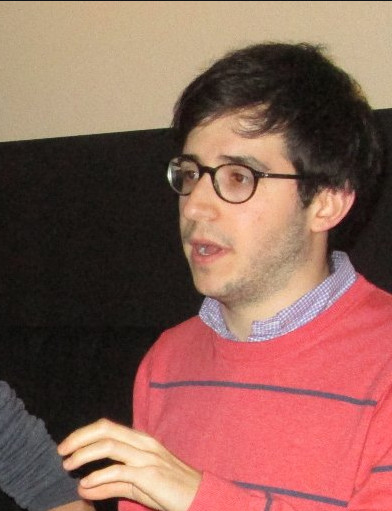
Yedidya, I was engrossed from beginning to end with EMPATHY, INC. How did this script find its way to you? More and more we’re seeing some scripts popping up about VR but this one takes VR to a whole new level.
Thank you. Yeah. Mark, the writer, and I had worked on our first film together with our producer, Josh Itzkowitz. We were basically just interested in playing with genres and trying to mix things. We were very into sci-fi and we thought that was a great place to tell a story that’s a commentary on what’s going on, or a commentary on current-day issues. We just really liked that platform. And we were just toying with this. And we had had some stories that we were interested in about entrepreneurship. We just thought it was like a fun area and it was full of a place to be a little bit cynical. So we had these two narratives that we were trying to push together, and we were trying to do something that we could do with the resources we had. We were trying to think out of the box. We were trying to think like, “What’s a sci-fi thing that we can do that’s kind of, free to show?” And then that’s kind of how we got into this idea. The effect was this thing that actually formed. And that’s kind of how we got to the original idea.
I just think it’s so creative and so inventive. And I like that you get to take some shots at entrepreneurism here. You get some digs at the Silicon Valley tech industries, but by the same token, you also speak to things like the greed of people. And, everybody now wants a get rich quick scheme versus the traditional safety of the world, the generation that came out of World War II which is that of Joel’s in-laws. I love how you stage that. We have the conservative dad – “Things are in IRAs. It’s taken care of. I’ve got a million bucks saved up.” And then you get the pushing of the younger generation for the get rich quick. “Quick money. Now. Greed.” And that truly gets embodied with the character of Veezy, the casting of which you did a great job with Eric Berryman in that role.
For sure. He really brought a lot to it. It was very cool to see him embrace that character.
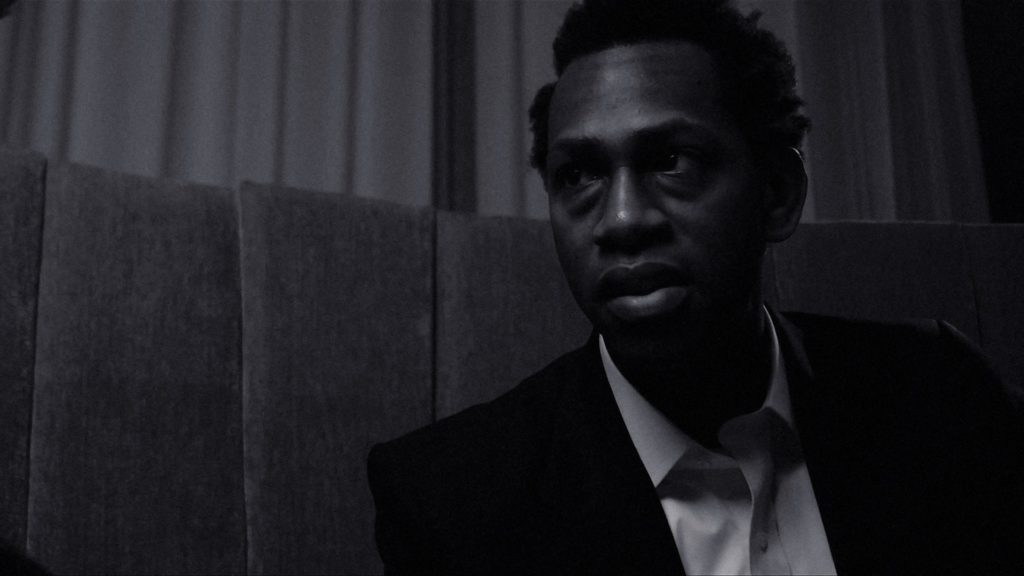
He has very much an Orlando Jones kind of vibe to him. But I love the slickness that he plays and the way he plays Zack’s [Robidas] character of Joel. And that, I think, is something that one can you actually see in one’s self, as Joel. There are moments of this film where I think everybody can tap into a part of them that is Joel, where they’re being taken in by a huckster, by a shyster.
Right. I think we were really trying to make every character really have just good points. And one thing that we were trying to do is, because you touched on the stuff with the parents, the dynamic. The parents had very legitimate arguments. Having kids and having a family are good things to want. They’re wholesome. And saving money and being stable, the same thing. So we were really just trying to make every character as believable and smart as possible. And our theory on that was that if we did that, there would just be these conflicts that would be, even at the dinner table, would be interesting to watch.
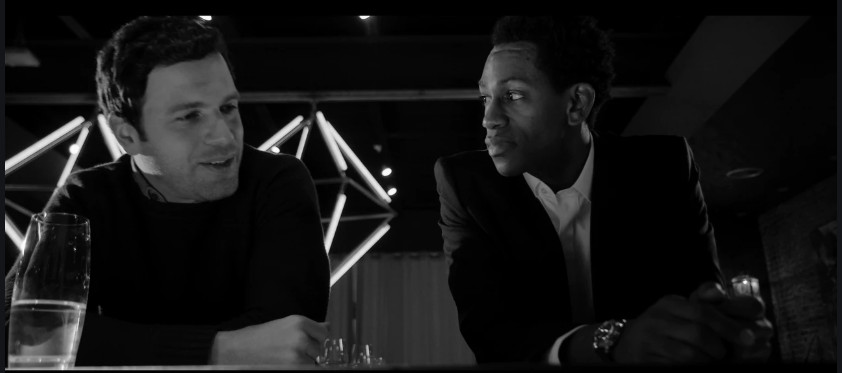
The dinner table conversations are absolutely incredible. And what helps make it even more so is your camera work. Darin Quan’s camera work, with some of those scenes, is amazing. I love the fact that with these dinner table conversations we get the reactive shots. We get to see the faces and the response of Joel to what his father-in-law and his mother-in-law are saying. We get to see his mother-in-law’s face as she’s winking and smiling, “Grandkids, grandkids, and you’d be across the street. And wouldn’t that be nice?” And everybody can relate to that. It’s so authentic. But a lot of that not only comes from the performance but from Darin’s beautiful cinematography. And I applaud you, for shooting in black and white. This makes this feel like it’s in its own world.
Cool. And that’s exactly what we were going for. We wanted to create something where people have been talking about it as taking place in the 90s. We wanted to create an environment where you really didn’t know when it was. It’s kind of in the future, kind of in the past. And yeah, that’s exactly what we were going for.
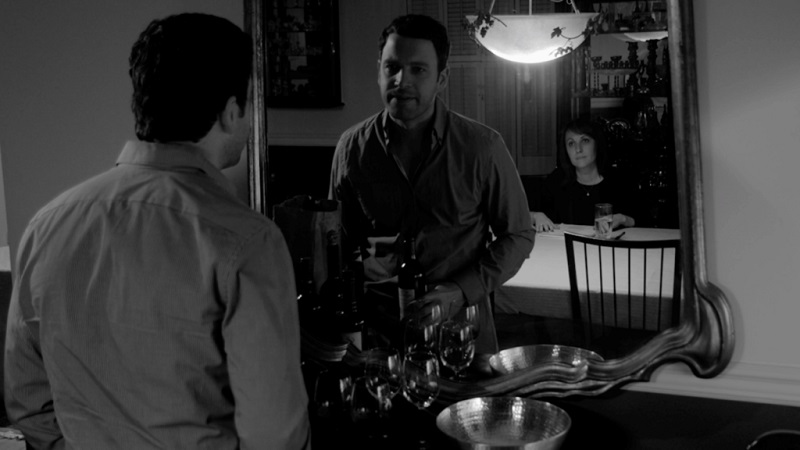
It has a very timeless feel to it because if you take a look in the in-laws’ home and you look at the furniture, you look at the china cabinet and the style. It’s like an Early American style, but you see other things off to the left of the screen, or you see the crystal and the china in the china cabinet being reflected. Which in black and white just looks gorgeous, by the way. And that’s from a different period. Then you look at the lab, and that could be the 1930s or the 1920s, as you walk into this empty, echo-y concrete bunker, almost. Even the empty house across the street, the architecture is very timeless. So for my money, this could be happening anytime, anywhere, in any universe.
Yeah, I think so. At one point we had thought about using flip phones just to kind of [make it] a contemporary thing. We wanted to kind of create mixed messages but we ended up not doing that. We did some other stuff, but yeah, I think definitely we wanted to just create that this is a different world and that that would be the sense of the metaphor for the audience.
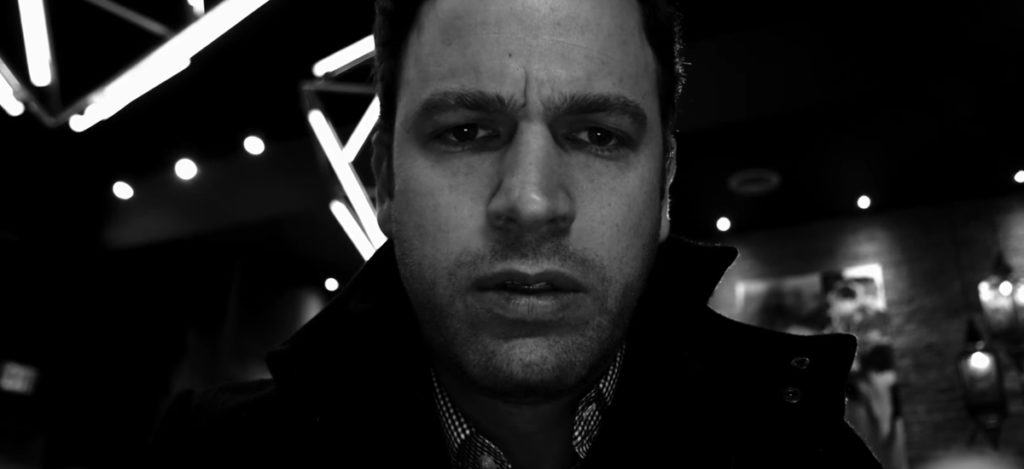
You truly, truly achieve that. Something that I’m very curious about is how you went about designing the lab and tech looks. Number one, when you’re sitting in a chair, and it’s a dentist chair, that’s going to put the fear of God in anybody to begin with because nobody likes the dentist. You call on that, and it’s very, very, very old school, and it makes you think automatically of the old propaganda films with the Nazis performing experiments. A very Mengele kind of thing. So you get that. But then you take what looks like a motorcycle helmet, put Velcro dots on it!
We were just trying to create something that felt homemade. We actually had had a couple variations of this, what this would look like. We used even some higher-end materials. A lot of it was through trial and error. But we came to this because we wanted something that looked homemade; we wanted something that looked not production-ready by any means, but also something that if it was real, this is how it would look – especially at this level that they’re at. And, that’s kind of how we came to it. So we decided that anything that we do, it has to at least make sense. I’m not an engineer or anything like that but we wanted wires to be coming out where you would think that wires should come out of and just try to imitate, basically, what it would look like if it was real.
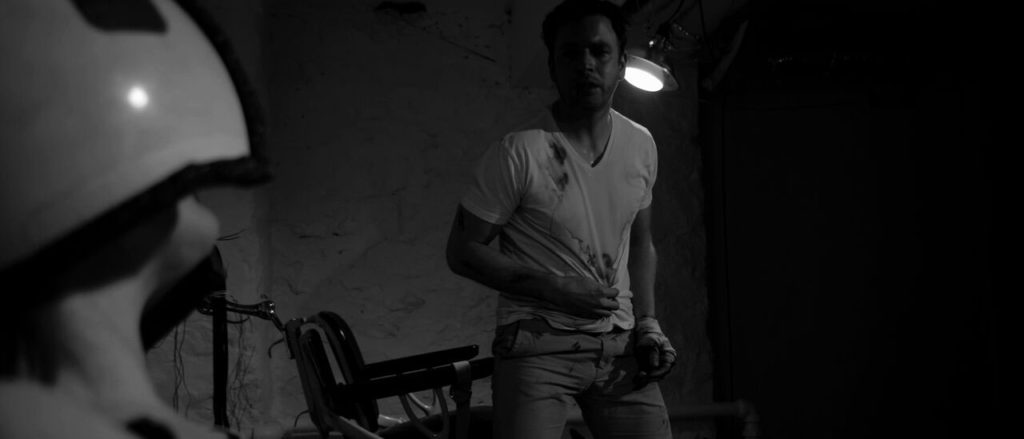
I think this is where your black and white also serves as a great help to you, as a filmmaker, in creating this “reality” because black and white is more forgiving. You can do more with light and shadows, with the black and the grays, to cover up some of the more very homemade aspects.
Yeah, for sure! We even ran out of fake blood. And we used chocolate syrup, one of the days, for blood.
Did you give a lot of thought to electing to shoot in black and white? Was that always the goal from the beginning?
Yeah, it was because of what we were talking about, that we wanted to create this feeling of a different time and place, to make this feel kind of like a fable. It was something that we had continued to talk about. Even at the script stage we had spoken about it. And then, as we were going into its production, just during pre-production, people would say, “Hey, you know, I’m concerned about this or that,” and we would revisit the issue, naturally, because it is a big decision. But as we were going into production it also became very obvious that it was going to just help us through production – a lot. We didn’t have to worry about one of the big things which is color temperature and the light. We didn’t have to worry about any of that. In a lot of cases, we shot with lights from Home Depot if we needed to light up an area. It wasn’t an issue in black and white. And, like I said, some of the stuff with the props, so just through testing and stuff, we had become more aware of that. It was just like a no brainer from that standpoint.
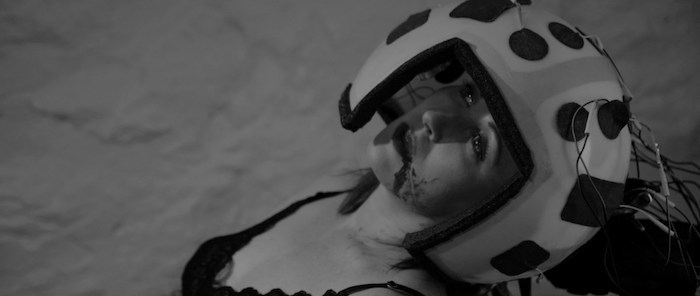
Hand in hand with that, I have to compliment you. I don’t know if you shot listed or storyboarded for this, but you and Darin and make the greatest use of dutching the camera to get different perspectives, some skewed, almost fisheye perspectives. Where we’ve got Joel and Sonny in the restaurant meeting, and Sonny’s telling him about he got conned by Veezy; I love how you shot that because it keeps us off-kilter watching it, and you’re wondering, “Is this real? Is this virtual reality? Is?” And that was going through my mind, through the whole film.
We had storyboarded pretty aggressively. We had spent probably two months storyboarding and then as we were progressing, just going back, revisiting, revising. And I think that gave us a lot of room on set to play with different lenses and different setups because we knew what we had to get. And if we had time, we could say, “Okay, let’s do this, or let’s do that.” And also, we know, “Okay, this is the shot that we want” and we can say, “Okay, let’s try in this lens,” and you can say, “Well, I know I could be out of here, but we don’t have to be out of here for another hour. Let’s just play with it. Let’s put on another thing. Let’s try a different performance.” So it just helps us a lot in that stuff. And the dutching, that was also a big thing. We were always looking for opportunities. And as the film moves along we push, narratively I mean, we push that more and more, to create that intensified feeling.
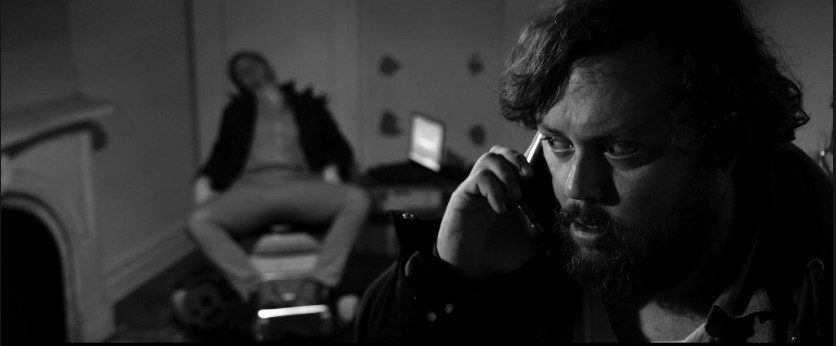
Absolutely. You do that as the narrative goes along. And you push it in the narrative, you push it in the visuals, because by that point when we see that we’re trading places with people and things are happening, you really start wondering through this whole film, what’s real? Is it live, or is it Memorex? Overall, this fits so well into a true noir, into the true noir genre in the truest sense of the word.
I think from the beginning that was kind of what we were trying to achieve. We love noirs, we like “Miller’s Crossing.” I think even “Pi” is a little bit of a noir. We were following stuff, but we were very, very interested in this. Because of that we just watched a lot and tried to understand what are the things that go into this? And when it came to Joel finally becoming a detective of his own and trying to figure out what’s really going on, we were trying to try to apply all the stuff we had learned into that.
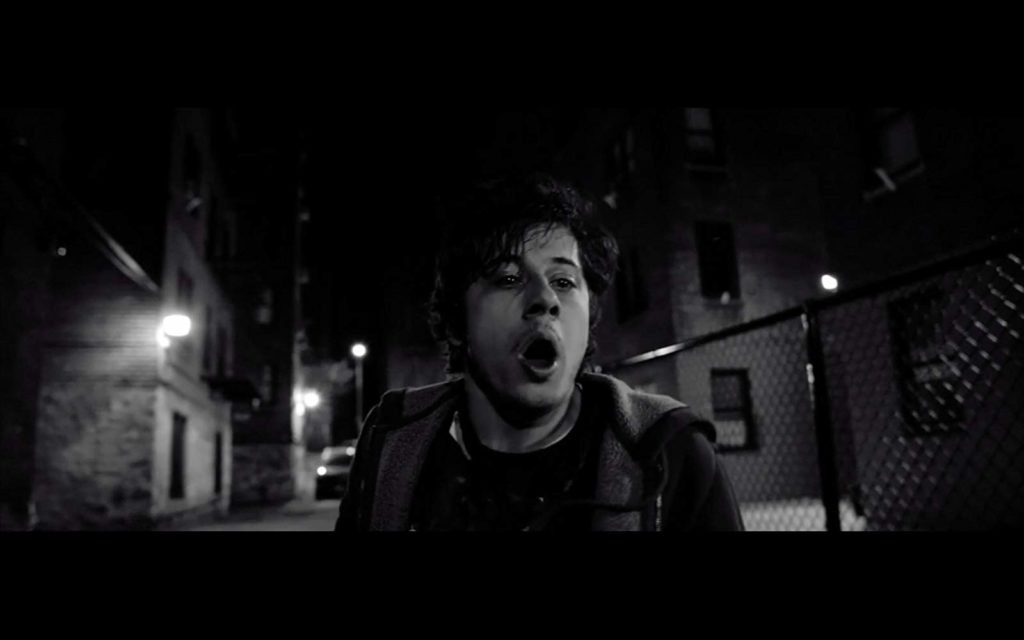
It truly does work. When we get that third act and Joel has now turned self-detective, you just fly. You’ve got a slow burn going up to that point. And then you just fly. It works so well watching it that you cannot look away. I’m curious how you went about your casting. Zack [Robidas] is perfect in the role of Joel. But I’ve got to tell you, Jay Klaitz as Lester? He’s a find.
Cool. Yeah. Thank you. So Jay, Jay got lucky. He gets all the good lines, you know? Basically what happened was, like I said, this was from the beginning something we had decided of coming up with the concept. We knew that the visual effects were going to be in the performances. So we knew we had to really double down. And one of the, I think, smart things that we did was, we hired a casting director who I had kind of worked with a little bit, and really liked. And we just said, “All right, we’re going to take. . .” – I think it was about two months – “Let’s really sit as much as possible. Let’s sit down. Let’s look at the interesting people in New York.” One of the nice thing about a casting director is that they get a lot of exposure. They get to see a lot of people. And even if they don’t like them for the role that they’re casting, they’ll keep them in the back of their mind and they’ll just say, “Okay, when something interesting comes up, I’m going to show it to them.” So we just said, “Who do you have that you really get excited by? And who you think can take this, because there’s a big range here.” Harley Kaplan, who was our casting director, brought in just a ton of interesting people. And we got to meet some really fantastic actors. But with Zack, it was just very obvious. I think he was the third person to read on the first day of casting. We immediately knew it was him. He completely understood who Joel was. He understood that he was someone who would get what he wanted. But also understood that that came from a deep insecurity and inability to trust other people, especially those around him, and to show weakness. He completely understood that. And I think that just made the character so, so deep. And then we got lucky with Jay. We got lucky with everyone, but also Jay brought a lot of humor to the role. And really played it, as much as he could. The character is always serious but he says ridiculous things and Jay really took it there. So yeah, I think New York has a ton of talented actors and we just very lucky that we got to meet them and that they were interested in working with us.
It’s like when we first see Lester on screen, and he looks up with those goggles on. Immediately I thought of Michael J. Pollard in “Tango & Cash”, the mad scientist inventor creating toys for the police department. That’s right where my mind went.
Ha!! Yeah. Very cool.
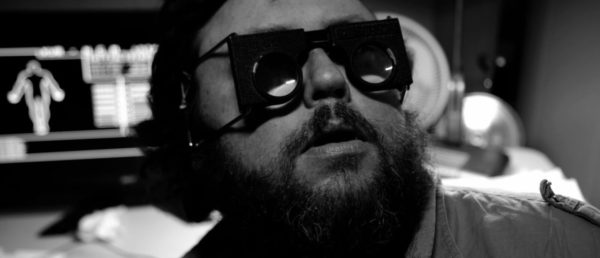
VR is exploding everywhere. Is that something that you’re interested in? Taking your filmmaking to the next level with virtual reality and what’s being done with that?
I’m actually not technically interested in it so much. I think it’s cool. I’ve seen some of the VR stuff that I’ve really been impressed by. I think its most natural place is in video games, things like that, where the goal is to feel immersed visually, you know? I think movies have a very different role. I think they’re immersive in a more emotional way. It’s a visual experience, but you’re really connecting with character. I think it’s much story-driven, generally. That’s probably why I’m not totally gung ho on [VR]. But, I think, from this movie’s perspective, what we were interested in is just this desire to be somebody else. Even for a moment. Which is something you can do if you watch a movie. When you watch any movie, you’re kind of that person. You’re that protagonist, on some level. With VR there’s almost like a physical thing where you think that you’re somebody else and where it’s so physically immersive. That desire was what was interesting to us. with EMPATHY, INC. That kind of denial of self. Like, where we thought there was confrontation. Is that a good desire, and does that desire actually lead to you becoming, you understanding, more about the people and world around you? So that’s where it’s really interesting to me.
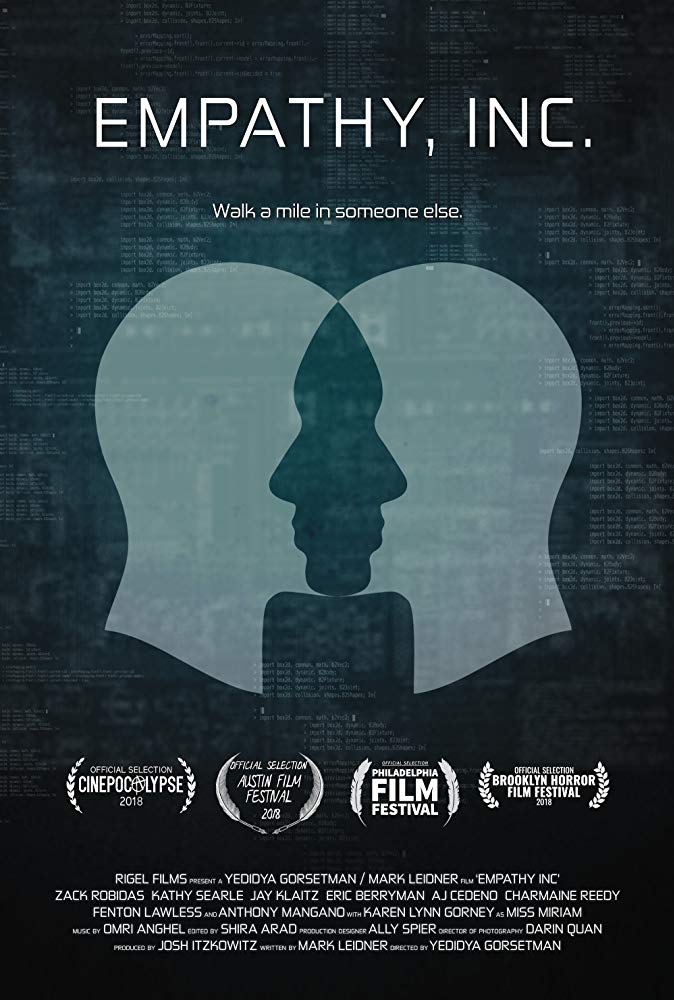
You give us great food for thought and really focus on the psychological aspect, and the moral and ethical implications, that come with the technology. And that, I think, is going to appeal to a lot of the audience out there. One last question before I let you go, Yedidya. I ‘m curious, what did you learn about yourself in the making of EMPATHY, INC that you are now taking forward into your future projects?
That’s a great question. That’s a great question. I think that when you make a movie or you do anything, you’re doing something on a big scale, and you learn so many technical things, that afterward you just want to apply that. You just want to take everything you learned and apply them, at a higher level, to the next. I think that that’s one thing I learned. But, just a little bit of more of a philosophical or deeper view of it is, I really want to work on projects. . . One of the real pleasures of EMPATHY, one of the things that kept it going for so long was when you’re willing to sit in the editing room and just fix all those little things that are really kind of annoying. Just the way you put up with that, that there was always these risk themes that we were after, and it would always reveal itself. You’d make a cut and you’d realize, “Oh, okay, now that theme is coming across more.” There was something to think about. There was something very deep about that process. So I think I really just want to work on projects that are going to carry that weight and are going to make me think in the same way that we hope the audience sees this film and still thinks about it. I think working on projects where that’s going to happen for me too, I think that’s going to lead to more stuff like that.
by debbie elias, exclusive interview 09/10/2019












